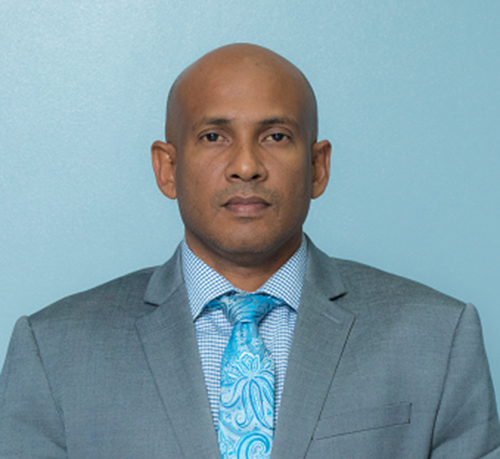The use of antiviral medication remdesivir to treat on COVID-19 patients in Guyana has started as part of the World Health Organization’s Solidarity trial and Head of Medical Services at the Georgetown Public Hospital Corporation Dr Mahendra Carpen has said the results have been promising.
Dr Carpen, a cardiologist who is leading the solidarity trial in Guyana to find suitable treatments for COVID-19 patients, told this newspaper that around 10 patients have been treated with the drug so far. “I know for sure three patients on which it was used did not need further oxygen and were able to breathe on their own and maintain good oxygen saturation and that is a decent positive outcome with this medication” he disclosed.
The drug, which has been around for quite some time, was first touted as a potential treatment for the Ebola disease but did not show much promise. “But now with the COVID-19 pandemic they decided to give it a try and early indicators were encouraging for the patients who were given this drug” Dr Carpen explained.
He added that the drug acts to reduce the virus and the impact on patients and while there were no indications initially on how the drug would be sourced for Guyana as the only available avenues to procure the drug was through clinical trials, interest in the use of the drug in Guyana was started through the Solidarity trial.
“It has since been an ongoing process and in the meantime we were able to source remdesivir from the manufacturer, which is outside the clinical trial and clinical studies,” Dr Carpen stated while adding that initially 240 doses of the drug was received and they received another 1,800 doses just over a week ago.
According to the cardiologist, initially the drug was given to severely ill patients but that has now changed and COVID-19 patients who were moderately ill and patients at earlier stages of the virus were administered the drug. “There is an initial dose of 200 milligrams and then you can give 100 milligrams daily. It’s an injection given in a slow infusion and you give it daily between five to ten days” he stated. He noted that recently, evidence from another trial suggested that the five-day administration of the drug could be just as effective as ten days, however that comes from one single trial and they are awaiting to see if that finding is reproducible elsewhere before they take that approach.
When asked if the medication is combined with others to combat the virus in the patient, he said that according to recommendations, once remdesivir is being used, the use of hydroxychloroquine and chloroquine has to be stopped. “If patients make criteria for both, we prefer to use remdesivir once we have [it] and so we will stop the hydroxychloroquine,” he added.
He further said that as long as there are no contraindications or a compelling reason not to give the medication, it can be used.
In Guyana, he noted, there is no waiting until patients become critical before the drug is administered. Patients at the COVID-19 Intensive Care Unit who require some level of oxygen support, even if they have mild or moderate symptoms, will be issued the drug. “We don’t wait until they are crashing or they’re on a ventilator to administer it,” he said.
However, Dr Carpen noted that patients with liver and kidney issues will not be administered the drug and those patients who experience any allergic or hypersensitive reaction to the drug administration will be discontinued.
When asked if the drug can aid in the slowing down of the mortality rate, he stated that there is still a long way to go before there is a definitive approach to reduce the mortality rate. “If we can prevent patients from reaching into that critical stage where it is very hard to come back from then we can potentially reduce the mortality rate,” he added.
Meanwhile, he mentioned that convalescent plasma is still being used to treat patients along with other things like vitamins C and D, zinc, and even ivermectin, which he said has shown significant promise in the fight against the virus. He reiterated that there is no “magic cure” for the virus but with each new modality that is used, a number of them offer small benefits. “There is nothing that really substitutes the basic wearing of masks, sanitization, washing of hands, social distancing etc. but if patients do get infected and they get sick and require hospitalisation at least we have a few options and I’m pleased that Guyana has those options as well,” he noted.
Dr Carpen added that there isn’t any particular other drug that health authorities here are currently looking at that is available commercially. However, he mentioned that there are a number of newer drugs that are being included in the solidarity trials that are more biologics and specific molecular type treatment that could be options in the future. “Right now they are all in the trial stages,” he said.





